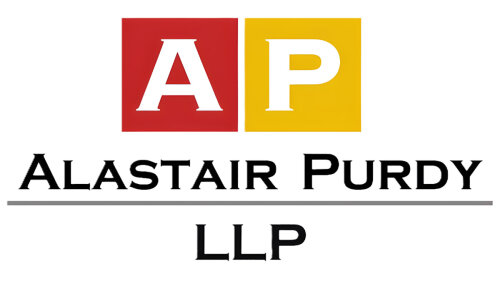Best Natural Resources Lawyers in Galway
Share your needs with us, get contacted by law firms.
Free. Takes 2 min.
List of the best lawyers in Galway, Ireland
About Natural Resources Law in Galway, Ireland
Natural resources law in Galway, as in the rest of Ireland, involves the regulation and management of various natural resources such as water, minerals, forests, and land. Galway, known for its rich natural landscapes, encompasses a wide array of resources that are crucial for both ecological balance and economic activities. The legal framework is designed to ensure sustainable development, preserve the environment, and regulate resource use. This includes compliance with both national legislation and European Union directives, given Ireland's membership in the EU.
Why You May Need a Lawyer
There are numerous situations where legal advice in natural resources may be necessary:
- Land Development: Individuals or companies looking to develop land might need legal guidance on zoning laws, environmental impact assessments, and permissions required from local authorities.
- Resource Extraction: Those engaged in or planning activities like mining or quarrying must navigate complex regulatory requirements and secure relevant permits.
- Environmental Protection: Legal issues can arise if there's potential for harm to the environment, including pollution or habitat destruction, requiring expert legal intervention.
- Water Rights: Water use and rights can be contentious and often require legal assistance to resolve disputes or to ensure compliance with regulations.
- Renewable Energy Projects: With increasing focus on sustainability, legal expertise is needed to navigate projects involving wind, solar, or hydroelectric power.
Local Laws Overview
Galway, like all of Ireland, operates within a comprehensive legislative framework concerning natural resources:
- Planning and Development Acts: These laws cover land use, zoning, and granting of planning permissions.
- Environmental Protection Agency (EPA) Regulations: These regulations are crucial for maintaining ecological standards and involve strict protocols for pollution control and environmental conservation.
- Forestry Act: Governs forest management and conservation to ensure sustainable use of woodland areas.
- Minerals Development Acts: Set out rules for the exploration and extraction of mineral resources.
- Water Services Acts: Focus on water management, supply, and quality, as well as wastewater treatment.
Frequently Asked Questions
What is the role of a natural resources lawyer?
A natural resources lawyer provides legal advice on the use, conservation, and management of natural resources, ensuring compliance with relevant laws and regulations.
Do I need a license to explore for minerals in Galway?
Yes, you must obtain a prospecting license from the Department of Communications, Climate Action and Environment before exploring for minerals.
How are water rights managed in Ireland?
Water rights in Ireland are managed through a combination of common law principles and statutory regulations, focusing on sustainable use and environmental protection.
What are the penalties for non-compliance with environmental regulations?
Penalties for non-compliance can include fines, legal action, revocation of licenses, and mandated remedial actions to address environmental damage.
Can I build on lands designated as protected areas?
Development on protected lands is heavily restricted and typically requires specific permission, ensuring that it aligns with conservation objectives.
What are the laws regarding renewable energy projects in Galway?
Projects must adhere to EU directives on renewable energy, national energy policies, and planning regulations set by local authorities.
How can I resolve a dispute over land use?
Disputes can often be resolved through negotiation and mediation; legal intervention may be required if these methods fail.
Are there incentives for sustainable farming practices?
Yes, there are various grants and schemes aimed at promoting sustainable agriculture within the EU framework, supported by national policies.
Who enforces natural resources laws in Galway?
Laws are enforced by a combination of local authorities, the Environmental Protection Agency, and national government departments.
How can climate change affect natural resources laws?
Climate change influences policy adaptations to resource management and conservation strategies, enhancing resilience and sustainability measures.
Additional Resources
If you require more information about natural resources, the following resources can be beneficial:
- Environmental Protection Agency (EPA): Provides guidelines and regulations related to environmental conservation and pollution control.
- Department of Housing, Local Government and Heritage: Offers information on planning laws and land use regulations.
- Galway County Council: Local authority for planning applications and development permissions.
- Teagasc, the Agriculture and Food Development Authority: A resource for sustainable farming practices.
Next Steps
If you find yourself in need of legal assistance concerning natural resources in Galway, follow these steps:
- Identify your specific issue: Clearly define the legal problem or information you need.
- Gather all relevant documentation: Such as permits, legal notices, or correspondence related to your situation.
- Consult with a specialized lawyer: Reach out to a lawyer with expertise in natural resources law to discuss your case.
- Contact local authorities if necessary: For permits or guidance on compliance with local regulations.
- Consider mediation: For disputes, mediation can be a cost-effective alternative to court proceedings.
Engaging with an experienced legal professional can help ensure that your activities are in compliance with the law and help protect your interests in natural resources matters.
Lawzana helps you find the best lawyers and law firms in Galway through a curated and pre-screened list of qualified legal professionals. Our platform offers rankings and detailed profiles of attorneys and law firms, allowing you to compare based on practice areas, including Natural Resources, experience, and client feedback.
Each profile includes a description of the firm's areas of practice, client reviews, team members and partners, year of establishment, spoken languages, office locations, contact information, social media presence, and any published articles or resources. Most firms on our platform speak English and are experienced in both local and international legal matters.
Get a quote from top-rated law firms in Galway, Ireland — quickly, securely, and without unnecessary hassle.
Disclaimer:
The information provided on this page is for general informational purposes only and does not constitute legal advice. While we strive to ensure the accuracy and relevance of the content, legal information may change over time, and interpretations of the law can vary. You should always consult with a qualified legal professional for advice specific to your situation.
We disclaim all liability for actions taken or not taken based on the content of this page. If you believe any information is incorrect or outdated, please contact us, and we will review and update it where appropriate.

















